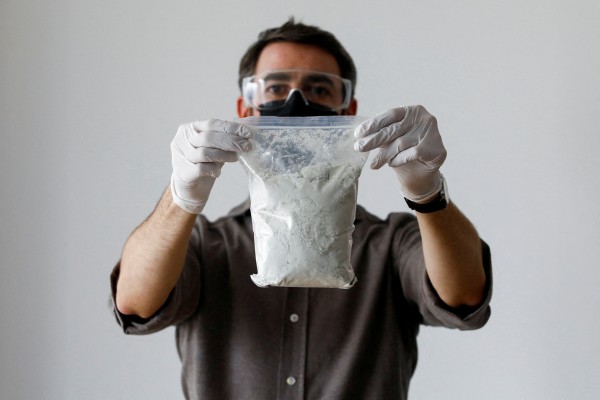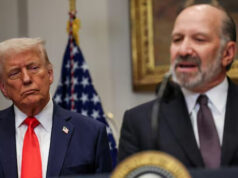
India has reaffirmed its readiness to strengthen cooperation with the United States in tackling the global narcotics crisis, even as US authorities identify India as the second-largest source of fentanyl precursor chemicals, officials said.
Responding to questions from StratNewsGlobal, the Ministry of External Affairs said institutional and operational collaboration has led to significant seizures and arrests, with further engagement planned through the sixth meeting of the India-US Counter-Narcotics Working Group.
MEA spokesperson Randhir Jaiswal said operational cooperation between the two countries has increased in recent years, resulting in coordinated enforcement actions and key interdictions. He noted that joint operations had disrupted transnational networks and that preparations for the forthcoming working group meeting were underway.
The Counter-Narcotics Working Group, upgraded in 2020, has held five meetings so far, during which both sides agreed on measures to strengthen joint efforts against narcotics. Jaiswal said information-sharing has played a central role in the group’s work, contributing to arrests and seizures involving illegal drugs and precursor chemicals.
The United States has also intensified scrutiny of India’s pharmaceutical sector, citing its role in the global supply chain of synthetic opioids. In September, the US State Department included India among 23 major drug transit or illicit drug-producing countries, highlighting its prominence in the production of fentanyl precursors, while noting that the designation does not imply a punitive judgement on India’s counter-narcotics efforts.
As part of enforcement actions, the US embassy in New Delhi revoked and denied visas to certain Indian executives alleged to be linked to trafficking of fentanyl precursors, applying the measures to them and their close family members under the Immigration and Nationality Act. The embassy said the steps were aimed at curbing the flow of synthetic opioids and acknowledged India’s cooperation in addressing the issue.
In January 2025, two India-based firms, Raxuter Chemicals and Athos Chemicals, along with senior executives, were charged with conspiring to distribute fentanyl precursors. Subsequently, Vasudha Pharma Chem Ltd and three of its executives faced similar charges in Washington as part of ongoing US investigations into the diversion of precursor chemicals into illicit supply chains.
Fentanyl, a synthetic opioid estimated to be around 50 times more potent than heroin, is widely regarded as a major cause of overdose deaths in the US. Its production relies on precursor chemicals such as NPP and 4-ANPP, which have legitimate industrial and pharmaceutical uses but are vulnerable to diversion for illegal manufacture, posing regulatory and monitoring challenges.
According to official accounts, precursor chemicals produced in India and China are often routed to processing centres in Mexico, where criminal groups convert them into fentanyl for smuggling into the United States, primarily through the southwest border. The US response has included criminal prosecutions, visa restrictions and enhanced law enforcement cooperation.
Both sides have indicated that the upcoming working group meeting will focus on evolving challenges posed by synthetic opioids and continued coordination to disrupt trafficking networks.




